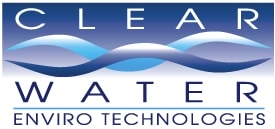Chlorine Alternative Swimming Pools: 4 Innovative Options

Do you like swimming?
Most likely your answer is yes and this is true for most families across the U.S. However recent studies across the globe have brought to light some shocking findings on the state of most swimming pools. The culprit? Chlorine and this is why you need to think of chlorine alternative swimming pools for your property.
Chlorine is an essential cleaning component in almost every pool across the country and its cleaning credentials of chlorine are not in doubt. Its byproducts have however been found to pose health risks such as eye inflammation, respiratory issues among others.
But it is not all gloomy news because advances in pool cleaning technology are giving you chlorine pool alternatives that are not only safe but even more affordable. Here is a glimpse on the choices you have;
UV Filtration
The problem with your pool is of course bacteria, algae and other microorganisms. Ultra violet light can effectively kill these organisms as the water enters the pool. This is a non-chemical technology that eliminates 99.5% of pathogens in your pool leaving it with lesser chemicals.
This system works by interfering with the DNA or RNA of microorganisms in the water including algae, bacteria and cysts among others. Through highly concentrated electronic rays all organic matter is eliminated.
The Energy Protection Agency (EPA) reckons it is one of the most effective pool sanitizers, easy to install, operate and maintain. The World Health Organization (WHO) says that UV allows for 0.5 lower chlorine levels. If you want Olympic pool type water clarity the secret lies in using UV lamps.
Use of Ozone
Ozone is an unstable inorganic gas that has a pungent odor and is released when free oxygen atoms collide with oxygen molecules. It is manufactured by subjecting oxygen molecules to ionization or UV radiation.
This is a strong oxidizer that is far stronger than chlorine but has no effect on the PH levels of your pool. The downside of ozone just like UV light is that it leaves no sanitation behind and works only as the water enters the pool and not while your swim.
Ionizers are the in-thing when it comes to chlorine alternative swimming pools and for a good reason. This system works by releasing positive copper and silver ions into the swimming pool water. These ions kill any organisms in your pool and they work over a long time.
A pool ionizing unit is inexpensive to maintain and works over a long time than other alternatives to chlorine. It is also safer because no chemicals are introduced into the pool and does not affect your pool equipment. It is viewed as the ideal chlorine replacement.
Bromine Pool Cleaner
Bromine is a dark-reddish chemical that can be used in place of chlorine despite having almost the same qualities. While chlorine has harmful byproducts that are also of no use in the pool there is formation of bromamine when you use this chemical and it has some sanitizing effects. Bromine is a weak oxidizer which is a draw back and it is also expensive making it less appealing.
With this hindsight you can make a decision on which alternative you want to make but remember to assess the benefits and downside of each.














